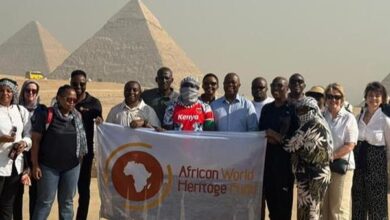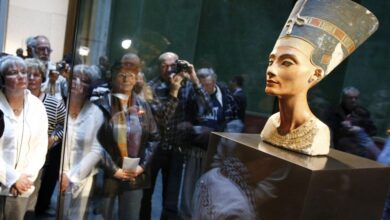People's Assembly Speaker Ahmed Fathy Sorour leveled harsh criticism against the West's stance on migrant labor during the Permanent Forum of Arab-African Dialogue on Democracy and Human Rights, held from 7 to 9 December at the Arab League headquarters in Cairo.
Sorour accused countries in the West of double standards and of violating human rights relating to the freedom of movement and of work.
The People's Assembly speaker said that talks about inter-cultural dialogue are only designed for "local propaganda and disguising facts." He attacked northern countries receiving migrant labor who refused to sign the 1990 UN convention on migrant rights. "Only a limited number of countries receiving labor signed the treaty, such as Egypt," he said, adding that migration is linked to human rights, since the freedom of movement and of work are among the pillars of the Universal Declaration of Human Rights.
Sorour argued that a lack of universality in a treaty relating to the rights of laborers and their families means that workers are subject to abuse and deprived of enjoying democratic rights in the countries they travel to. Migrants fall victim to crime, sexual abuse, and modern forms of slavery.
Sorour said these conditions reveal a double-standard in handling human rights issues, and a shrinking environment for the protection of human freedoms around the world.
Sorour also blamed the deteriorating situation of labor migrants' rights on globalization. He argued that those who call for the liberation of trade and products restrict the movement of humans. "Who has the priority to be freed? Mankind or goods? How can we champion an idea and then contradict it?" he questioned. He went on to note that although military occupation by colonial powers has stopped, economic occupation continues.
Boutros Boutros-Ghali, head of the National Council for Human Rights, made a statement in which he talked about the forum's intention to study the situation of migration, especially between southern states, on which there has been little research, compared to the many studies made on migration between the North and the South.
UNESCO's director general, Irina Pokova, said that her position towards the "fragile conditions and outrageous injustice" that threaten the world is based on humanitarian awareness, which is at the heart of the organization's activities. "UNESCO encourages the finding of a comprehensive solution to the interlinked problems caused by different waves of migration," she said, adding that "[the] unique power of UNESCO is reflected in the advice it gives to countries and the backing it provides in all fields, based on its objectives and its experience in the fields of education, science, culture and communication."
Translated from the Arabic Edition.




